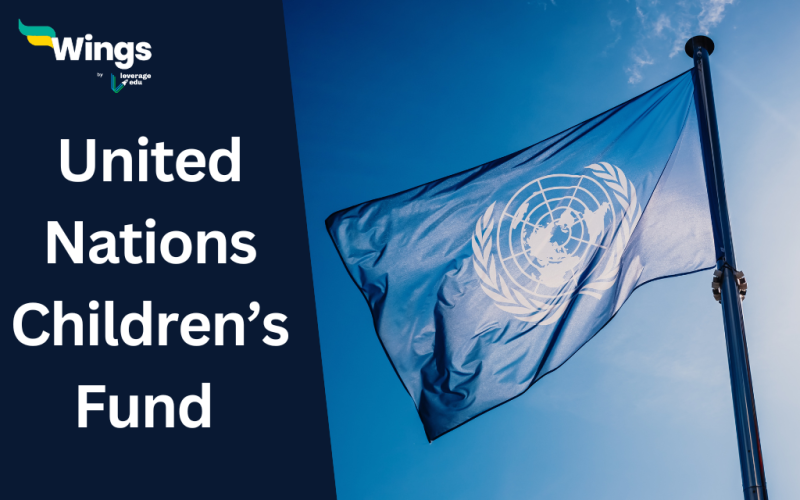UNICEF UPSC Notes: In a world where the rights of children must be safeguarded, the United Nations Children’s Fund (UNICEF) stands as a beacon of hope. UNICEF works tirelessly in over 190 countries and territories, striving to reach the most disadvantaged children and adolescents and to protect the rights of every child, everywhere.
If you are preparing for the UPSC CSE Or CDS Exam this blog will help you cover the Static GK Portion topic, which falls under International Bodies – UNICEF what it does, why they do it, their history, and their focus areas.
Table of Contents
History of UNICEF
For 75 years, UNICEF has worked tirelessly to improve the lives of children and their families. Despite formidable global challenges, United Nations Children’s Fund (UNICEF) staff members have fought tirelessly for the rights of every child, providing safe shelter, nutrition, protection from disasters and conflicts, and equality. UNICEF’s roots are deeply ingrained in its mission and core values – care, respect, integrity, trust, and accountability.
What Does UNICEF Do?
UNICEF is the world’s largest provider of vaccines, championing child health and nutrition, ensuring access to safe water and sanitation, promoting quality education and skill building, preventing and treating HIV for mothers and babies, and protecting children and adolescents from violence and exploitation. They work from early childhood through adolescence, leaving no child behind.
Why Do They Do It?
Children’s needs remain constant, regardless of the evolving world. UNICEF’s unwavering commitment to children is evident in its mission to help children survive, thrive, and fulfil their potential. They are on the ground, providing lifesaving assistance and hope to children and families during humanitarian emergencies, ensuring that children’s rights are upheld without bias or politics.
Must Read: What is the Full Form of UNICEF?
What Areas Does UNICEF Work In?
UNICEF’s reach is vast, covering a wide array of focus areas:
- Adolescent Development: Nurturing the growth and well-being of adolescents to prepare them for a brighter future.
- Child Protection: Safeguarding children from harm, exploitation, and abuse.
- Child Rights: Advocating for children’s rights, ensuring they are respected and protected.
- Children with Disabilities: Empowering Children with Disabilities to Lead fulfilling lives.
- Climate Change and Environment: Addressing Environmental Challenges That Affect Children’s Lives
- COVID-19 Response: Mobilising resources and support to combat the pandemic’s impact on children.
- Early Childhood Development: Focusing on the critical early years of a child’s life.
- Education: Promoting quality education and lifelong learning opportunities for all.
- Gender: Advocating for gender equality and empowering girls and women.
- Health: Ensuring access to healthcare and promoting child health and nutrition.
- Humanitarian Emergencies: Providing vital aid during crises.
- Immunization: Supporting vaccination programs to prevent deadly diseases.
- Migrant and Refugee Children: Assisting children on the move, including refugees and migrants.
- Nutrition: Combating malnutrition and ensuring healthy growth.
- Social and Behavior Change: Promoting positive behaviors and social norms.
- Social Policy: Advocating for child-friendly policies and social protection.
- Water, Sanitation, and Hygiene: Ensuring access to clean water and sanitation facilities.
How They Do It?
UNICEF’s approach is characterized by innovation, partnerships, supply and logistics, evaluation, global advocacy, and humanitarian action for children. Their commitment to innovation drives the development of new solutions and approaches. They collaborate with a diverse range of partners to maximize impact. Supply and logistics ensure that life-saving supplies reach those in need promptly. Rigorous evaluation helps monitor and improve programs, while global advocacy raises awareness and advocates for children’s rights.
Also Read: List of top International Organizations & their functions
FAQs
The full form of UNICEF is the United Nations Children’s Fund.
UNICEF is the world’s largest provider of vaccines and works to champion child health and nutrition, ensure access to safe water and sanitation, promote quality education and skill building, prevent and treat HIV for mothers and babies, and protect children and adolescents from violence and exploitation. They work from early childhood through adolescence, leaving no child behind.
UNICEF’s unwavering commitment to children is driven by its mission to help children survive, thrive, and fulfil their potential. They provide lifesaving assistance and hope to children and families during humanitarian emergencies, ensuring that children’s rights are upheld without bias or politics. Children’s needs remain constant, regardless of the evolving world, and UNICEF strives to protect their rights and well-being.
We hope that you have gathered the relevant information related to the World Economic Forum. For much more content on facts like this, you can turn to our general knowledge page. Also, you can check out our blog on general knowledge for competitive exams here! Keep learning.
 One app for all your study abroad needs
One app for all your study abroad needs













